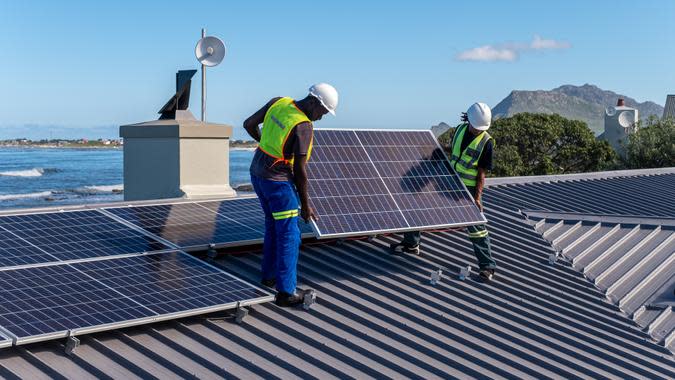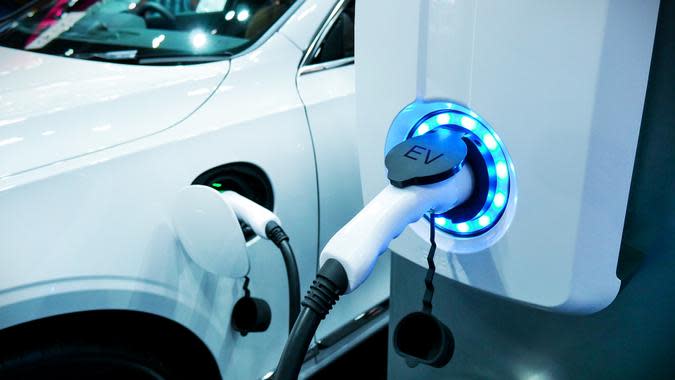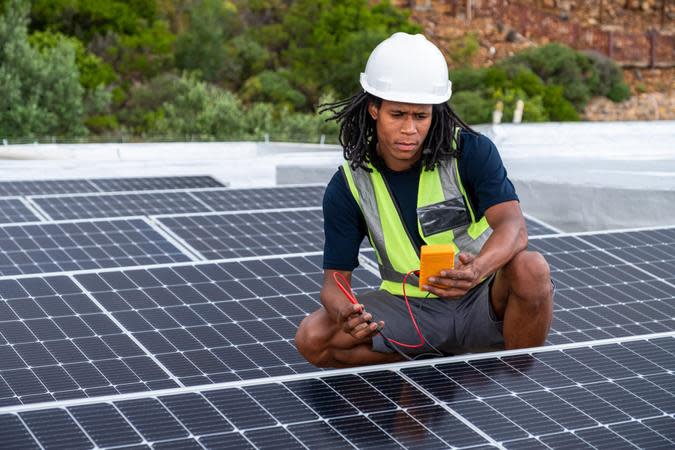What Benefits Could You Get From the Inflation Reduction Act?

Over the weekend, the United States Senate signed off on the Inflation Reduction Act after much debate about spending and provisions in the legislation. In fact, it was Vice President Kamala Harris whose vote broke the 50-50 tie in the Senate.
See: Inflation Reduction Act Offers Home Tax Credits, Rebates to Upgrade Electric and Solar Infrastructure
Find: 7 Surprisingly Easy Ways To Reach Your Retirement Goals
President Joe Biden released a statement on Sunday, August 7 noting how the Act will put working American families front and center, alleviating some of the increased costs that have been an effect of inflation.
It now heads to the House for a final vote; if passed, Biden will then sign it into law.
Some of the key points include yearly caps on prescriptions for seniors and reduced health insurance premiums for those who have coverage through the Affordable Care Act; investments in sustainable energy to help fight the effects of climate change; and a sweeping tax reform that increases the amount of taxes paid by individuals and corporations making over $400,000 a year.
Here's a closer look at what the Inflation Reduction Act aims to tackle.

Improved Prescription Drug Prices & Reduced Health Care Premiums
The provisions of the act include caps on out-of-pocket prescription payments for anyone on Medicare, limiting the amount to $2,000 in an annual cycle by the year 2025.
Learn: How Will the Inflation Reduction Act's Tax Reform Impact You?
"In addition, it will do something that we have tried -- and failed -- to do in Washington for decades -- allow Medicare to negotiate a better deal on prescription drugs," said U.S. Department of Health and Human Services (HHS) Secretary Xavier Becerra on Aug. 7.

Climate Change Initiatives
This is the largest bill to take on these reforms in U.S. history. The act will allocate more than $360 billion towards modernization efforts, including $60 billion invested in the manufacturing and implementation of wind turbines and solar panels across the 50 states.
See: Inflation Reduction Act Seeks to Improve Prescription Drug Prices, Reduce Health Care Premiums
Democrats claim that these measures will end up reducing greenhouse gas emissions by 40% as of 2030.

Tax Reforms & Breaks
To help pay for the new provisions in the Inflation Reduction Act, the U.S. government will institute new tax structures.
Discover: Inflation Reduction Act's Climate Change Initiatives Subsidize Solar Panels, Electric Vehicles
The changes will only apply to individuals and corporations making more than $400,000 annually and will not affect lower and middle-class workers or small businesses. The new bill would also impose an excise tax equal to 1% of fair market value for stock buybacks by companies and executives.
Part of the Act is also offering additional tax credits for measures that align with the overarching themes of the legislation such as, mentioned above, breaks for families and individuals that invest in electric cars and solar energy.

Electric Vehicle Incentives
The act would extend $7,500 in tax credits to EV owners, but puts a cap on salaries. For joint returns it would be $150,000, for head of household it is $112,500, and for a single taxpayer it is $75,000, according to the text of the bill.
Buyers of used cars could receive a $4,000 credit. However, the sale price of the vehicle can't exceed $25,000, according to the text of the bill.

Home Tax Credits and Rebates
The act will allocate approximately $370 billion for energy and climate programs and provide Americans ample opportunities to save money through rebates and tax credits.
Discover: EV Tax Credit: How Electric Car Owners Could Reap Benefits of Inflation Reduction Act
According to MarketWatch, under the Inflation Reduction Act, $9 billion has been allocated to total energy rebates. Homeowners can receive rebates for qualified electrification projects -- including up to $1,750 for converting to a heat pump water heater, up to $8,000 for a heat pump HVAC system and $840 for electric load service panels and electric appliances, such as dryers and stoves.
Rebates are also available to homeowners that will need to upgrade electrical panels (up to $4,000 rebate), insulate and seal their house (up to $1,600 rebate) and repair wiring (up to $2,500 rebate).
For those who install residential solar panels or solar battery systems (with at least 3 kilowatt-hours of capacity) will qualify for a 30% tax credit for installations until Dec. 31, 2034. This credit dips to 26% for installations after Dec. 31, 2032, and before Jan. 1, 2034.
David Nadelle and Yaël Bizouati-Kennedy contributed to the writing of this article.
This article originally appeared on GOBankingRates.com: What Benefits Could You Get From the Inflation Reduction Act?

 Yahoo Movies
Yahoo Movies 